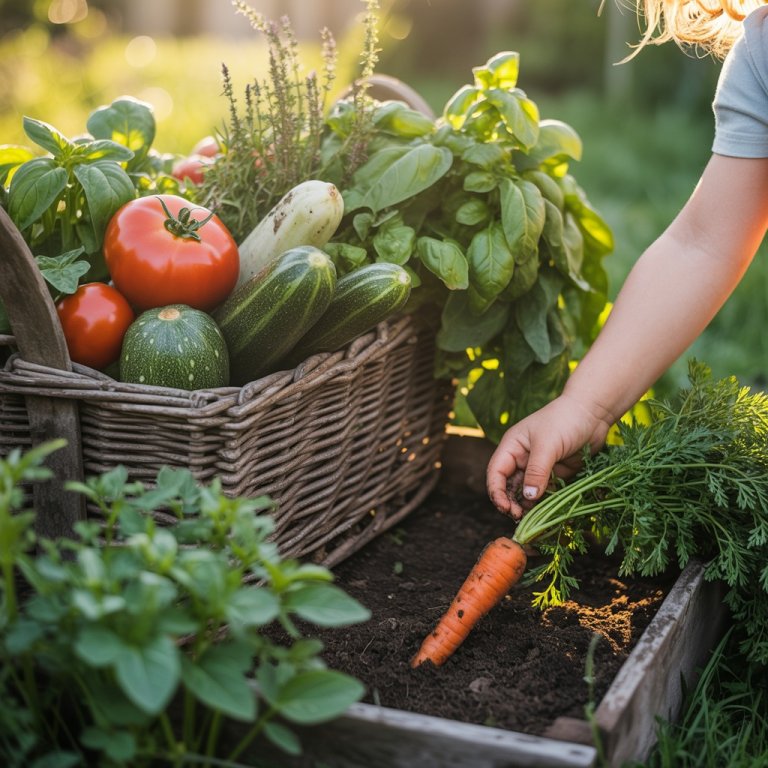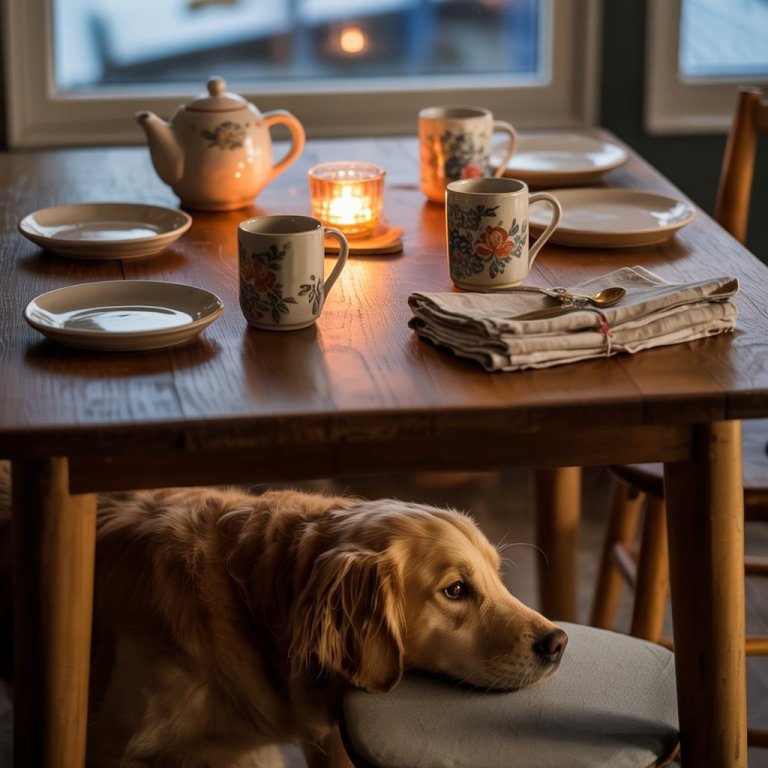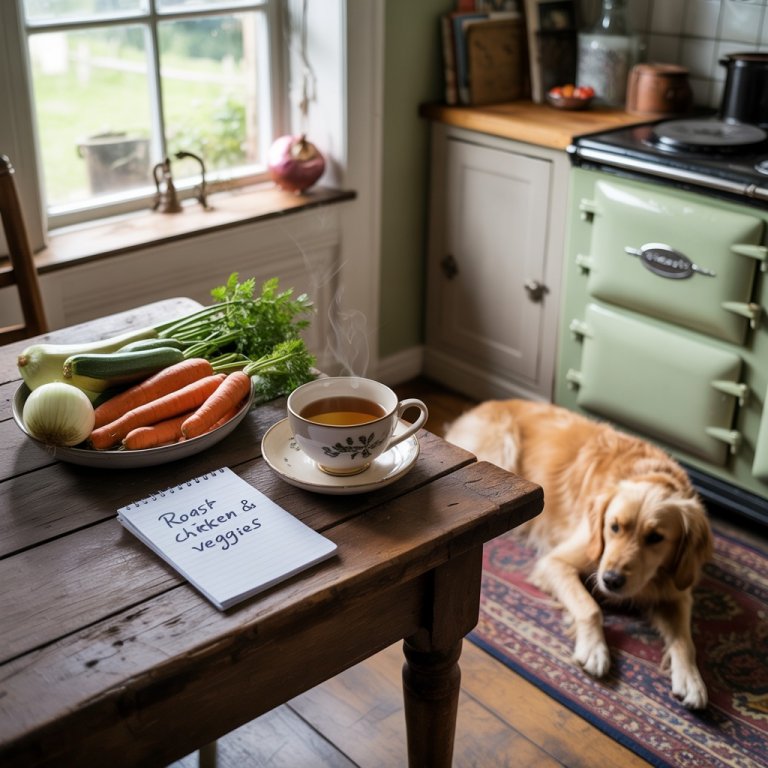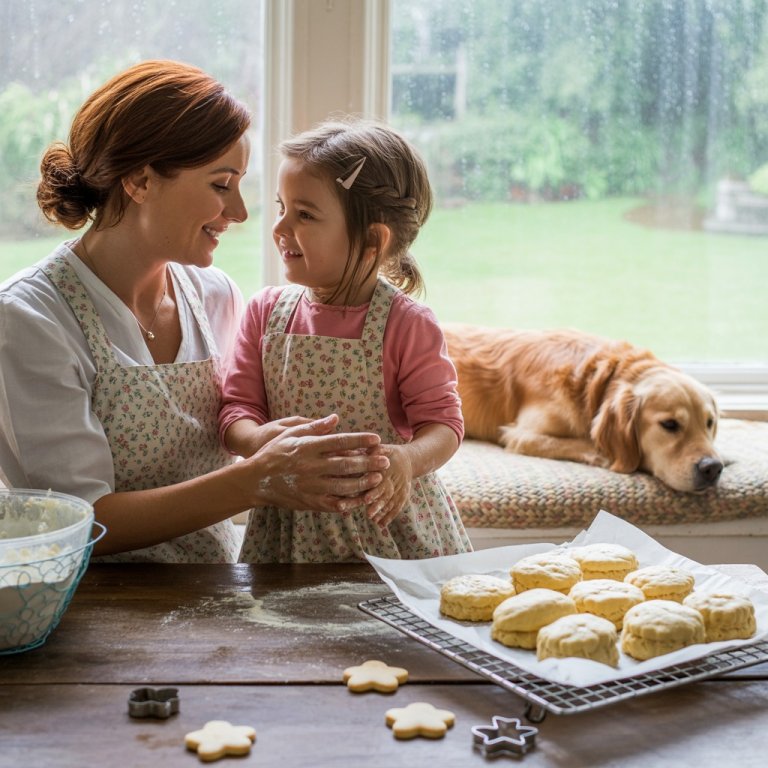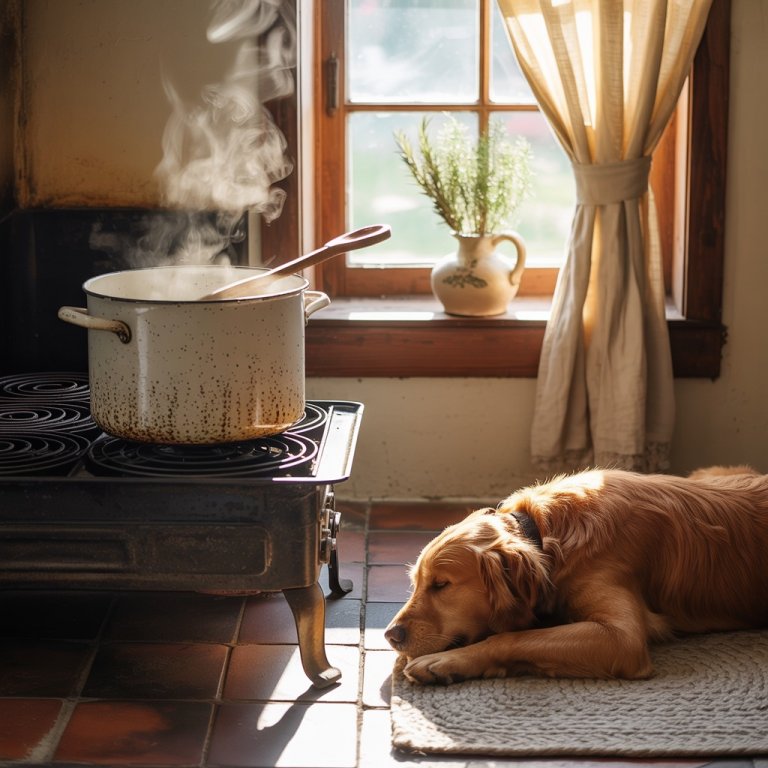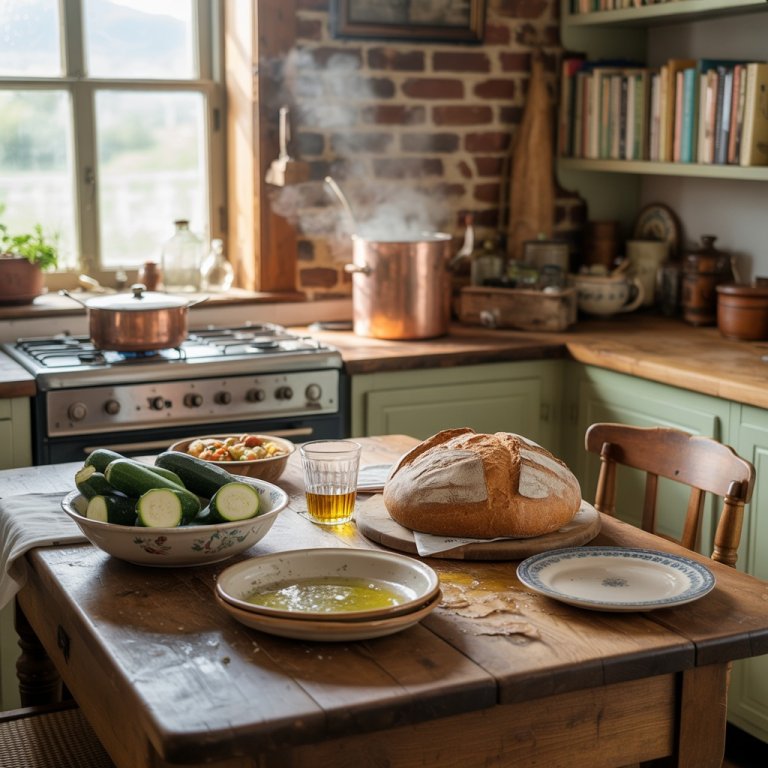A Week Without the Supermarket
When I Decided to Step Away From the Trolleys
It was a Tuesday morning—one of those quiet moments when you realise you’re moving on autopilot. I’d just unpacked our usual supermarket shop into the pantry: tins, wrappers, packages, some impulse buys I didn’t even remember choosing. As I walked past the garden window, I caught sight of the soft green of young chard and a couple of wilting tomatoes still clinging to the vine. In the pantry, old jars of lentils, pasta, and beans sat patiently, waiting for recognition. Above the fridge, the community market calendar reminded me of something we often forget out here in the countryside.
And in that stillness—amidst the plastic bags and fluorescent labels—I felt a gentle but persistent tiredness. Not of the body, but of the spirit. All those aisles and endless choices felt overwhelming. I realised I was craving simplicity, connection, something real.
So, without much ceremony, I said to myself: let’s try a week without the supermarket.
No wheels rattling in the parking lot. No checkout beeps or loyalty schemes. Just what we grow, what’s hidden in jars and sacks at home, and whatever delights the local market can offer.
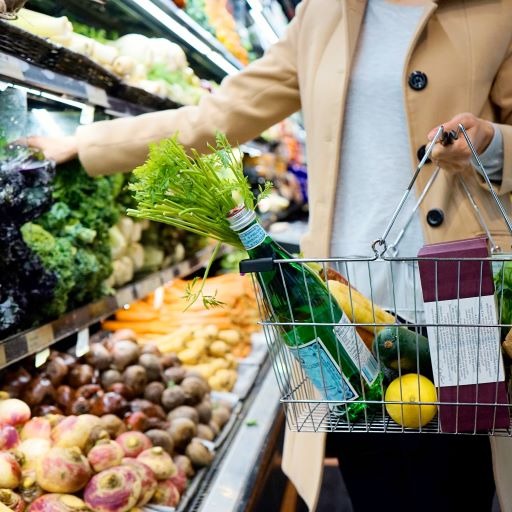
The First Day: A Bit of Panic, A Bit of Pasta
Day one arrived with a curious mix of excitement and mild panic. I’d never realised how much I leaned on quick fixes from the supermarket—frozen peas for curries, yogurt pouches for school lunches, and the ever-reliable sandwich ham for emergencies.
But instead of spiralling, I made a list of what we did have. In the fridge were eggs from the neighbour’s hens, a handful of kale and chard, onions, garlic, potatoes, a lonely courgette, and jars of roasted tomatoes from summer’s bounty. In the pantry, tins of lentils, packets of pasta, oats, and pockets of baking staples waited quietly.
That evening, I boiled pasta, slowly cooked garlic in olive oil, stirred in those summer tomatoes, wilted the kale in the sauce, and poached eggs to float on top. The children eyed it suspiciously at first. My husband took a tentative bite and said it tasted like January in Italy.
Not bad for a pantry-and-garden rescue.
And so it began—meals born from what I had, not what I thought I needed.
Finding Our Rhythm
By the third day, something unexpected happened: I started to look forward to cooking. The limits we set didn’t feel restrictive; they felt freeing. Fewer decisions meant less stress and more creativity.
We roasted beetroot from the bottom of the basket, warmed them with lentils and a tangy herb dressing made from leftover cream and lemon. Another morning, breakfast became oats cooked with mashed banana and topped with spoonfuls of honey. Then, on Thursday, a mushroom stall appeared at the market like a gift. I made a creamy mushroom risotto scented with thyme picked fresh that morning.
The true delight, though, was in the children. Instead of clamoring for branded snacks, they rummaged through cupboards for walnuts, sunflower seeds, and dried fruit. They helped me slice apples from the neighbour’s tree for a quick compote. When the carrot muffins appeared—made with grated carrots, oats, and honey—they didn’t just eat them. They welcomed them, sticky fingers and all.
They even insisted on helping at prep: peeling, grating, sweeping—the mess and all. I stepped back a little each time, letting them take their place in the kitchen rhythm. The sound of laughter, the dusting of flour, the conversations about tomatoes and thyme—all of it built a quiet comfort in our days.
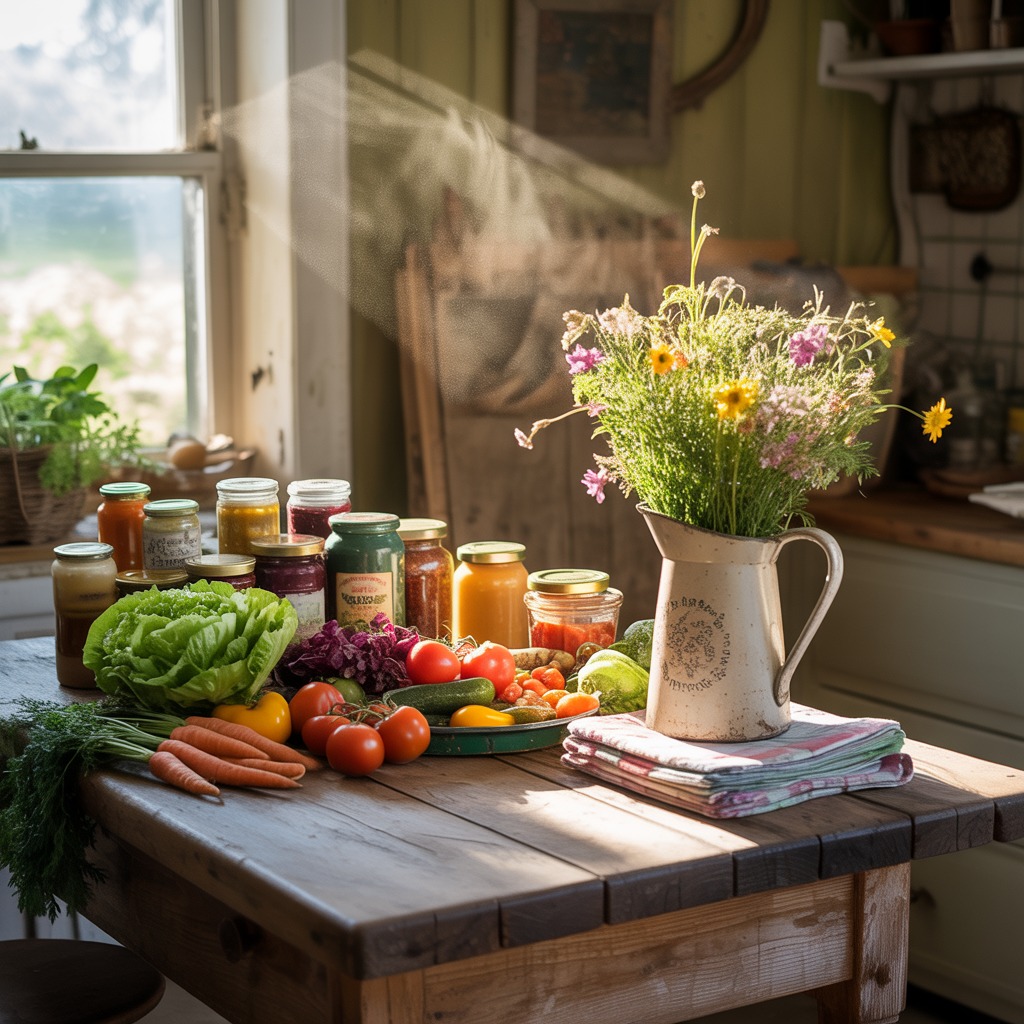
What I Missed (and What I Didn’t)
We’re all human, and cravings whispered through the week. By Friday afternoon, I was longing for sharp cheddar. The local soft cheese was lovely but didn’t quite fill the hole. I missed the convenience of tinned sweetcorn and my go-to oat milk for cereal.
But here’s what I didn’t miss: the stress of the big shop, the anxiety of impulse buys, the feeling of overwhelm among aisles and endless choices. That week, cooking felt calm. Our kitchen felt warm and lived in, slower—more intentional.
We talked about where things came from, without preaching. The kids listened quietly as I walked them through how beans grow or what makes kale taste good. They asked questions: why are these beans green or can we plant zucchini next year? They noticed the hen’s eggs looked different than the supermarket kind. And Maple, our golden retriever, thrived on our scraps—never happier than when I dropped carrot peels under the table.
What the Garden Gave Us
It was remarkable, really. The garden wasn’t huge—just a few raised beds and some herb pots—but it gave us enough to shape our meals.
Rocket sprouted brave and peppery despite the frost. Thyme and rosemary stood strong. Leeks appeared, reminding me of last autumn’s planting meander. Even kale, usually received with groans from little mouths, tasted sweeter when they helped harvest.
That act—bringing dinner in your arms from the garden to the kitchen—is powerful. It reminded me why I chose this slower life. Not just for food, but for living. For connection. For never forgetting the hands that shaped what we eat.
One special night, we had a salad of rocket, sliced apples, toasted sunflower seeds, and a honey‑vinegar dressing. Nothing fancy, but there was something about it that made us pass the bowl twice. Was it the taste, or the story behind it? Maybe both.
Lessons I’ll Keep Carrying
At the week’s end, I didn’t rush back to the supermarket. I visited, yes—mostly for cheese and a few essentials. But I came home with far fewer bags than normal.
I realised the pantry is a treasure chest. That local markets, even small ones, bring food with roots and stories. That real nourishment isn’t about packages or glossy labels—it’s about care.
I discovered that cooking with less is richer. That carrots taste better when grown nearby, onions feel comforting when you’ve seen them sprout, and mushrooms smell of rain when you buy them at dawn.
And I found joy in simplicity: a meal made from heart over hype, from seasons rather than trends.
Final Thoughts
This week without the supermarket did more than save packaging or reduce spending. It stirred something gentler: connection. For my family, to our food, and to the earth we live on.
It taught me that food is rhythm and relationship. That the kitchen can be peaceful, not frantic. That we only need enough—not too much, but just enough.
I’m not swearing off supermarkets forever. I’ll still pick up peanut butter and the occasional oat milk. But I will carry this into our life moving forward. I’ll give the pantry priority. I’ll greet the garden. I’ll spend a little more time at markets where farmers wave hello. I’ll let my children see where their food starts.
What about you? Have you tried cooking this way? What simple meal surprised you with comfort?
Let’s keep our kitchens kind—to us, to the earth, and to the generations who will cook after us.

